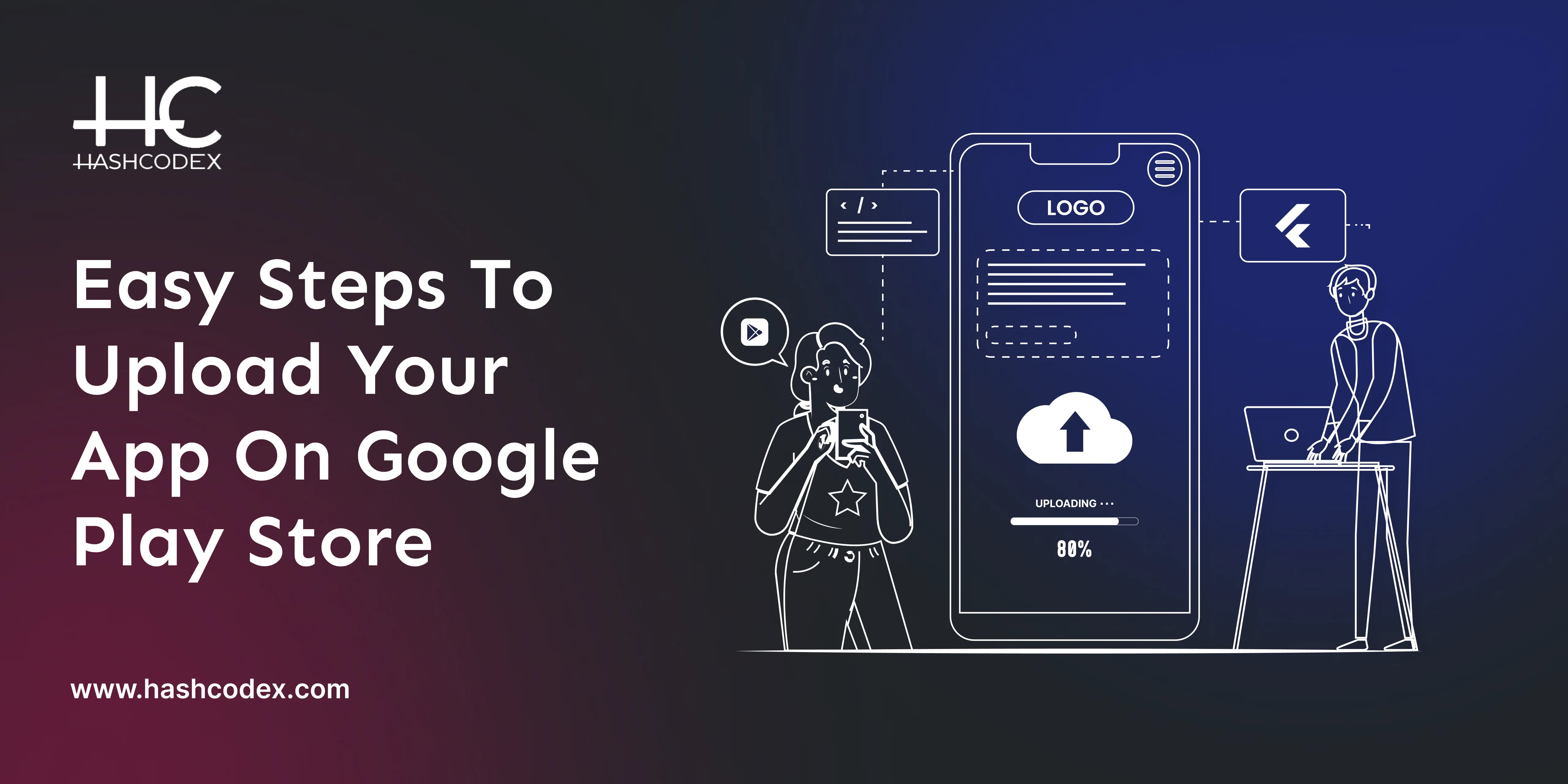Did you know there are over 8.9 million mobile apps in the world today?
From small startups to big brands, everyone’s developing mobile apps. But why? Simple. Today, people spend more time using apps.
Whether it’s shopping, banking, or socializing, they do almost everything on their phones. Many smartphone users open apps more than 11 times a day. So, if you want your product or service to reach more people, building an app is one of the smartest moves.
In this blog, we’ll walk you through the top 10 benefits of developing a mobile app, why it’s important for your business and what the future holds.
Ready? Let’s get started!
Why Build a Mobile App When You Already Have a Website?
A website is absolutely essential for every organization. But creating your own mobile application could improve the user experience for your customers. Users are not willing to open a web browser every time they want information; instead, using mobile apps is more convenient for them. It delivers the data directly to them with just a few taps, making it much faster and easier.
Let’s look at the example of banking apps: A banking website eliminates the need to visit a branch, but a specialized mobile banking application simplifies processes such as money transfers and balance tracking.
Mobile applications also allow firms to do marketing affordably. Apps can send push notifications and offer unique features that keep users engaged. This can’t be done on a website.
Top 10 Benefits of Developing a Mobile App For Your Business
There are plenty of advantages in mobile app development, it helping you connect easily with customers, giving simple access and reaching globally, etc. Let’s have a look at the major benefits you have:
1. Improve Your Brand
A mobile app is a powerful tool that can help your brand grow. It gives customers quick access and builds trust in your business. Your app works as a brand representative due to its innovative design and communication. It ensures that clients receive the correct service at the right time, helping you to meet your brand promise.
Practical example: Starbucks, a global coffee company, uses its app to make ordering quick, offer rewards, and send personalized offers, keeping customers loyal and engaged.
2. Connect with customers anytime
Apps make it easy to stay in touch with your customers anytime. You can send them important updates, like new sales or products, through push notifications. This helps keep your brand in their mind, even when they’re not thinking about it.
Practical example: FedEx, a multinational delivery and logistics company, sends real-time delivery updates, keeping customers updated and memorable.
3. Add Value for Customer
Offering extra value to users through your app is a unique way to stand out from your competitors. Apps can include features like online product demos or easy ways to manage subscriptions. Also, add some features that make your app special and useful for your customers.
Practical example: MyChart, a digital healthcare platform, lets patients manage appointments and prescriptions, which makes it easier for customers and builds loyalty.
4. Improve Customer Engagement
People spend more time using apps than websites. This gives you more chances to connect with them. You can add customizable features such as storing favourite goods and making wishlists. The more customers interact with your app, the more willing to purchase.
Practical example: Duolingo, a language learning app, keeps users engaged by providing daily challenges and rewarding success, making learning enjoyable and memorable.
5. Personalize Experience
Nowadays, customers want brands to understand their needs. Apps allow you to provide them with a customized experience, including product suggestions and special offers based on their interests.
Practical example: Amazon, a well-known e-commerce company, suggests products based on prior searches, making purchasing faster and personalized.
6. Simplify orders
An app can make ordering easier and faster by remembering a customer's preferred products and payment information. Mobile shopping is growing fast, people are expected to buy 43% of things through mobile apps.
Practical example: Uber, a ride-hailing and mobility company, made it easier for clients to schedule trips with only a few taps. Also, these applications can help to simplify transactions in different industries.
7. Stay ahead of competitors
A unique app could help you stand apart in any business. Whether you work in retail, healthcare, or education, providing an excellent user experience and adding innovative features like a chatbot will set you special from others.
Practical example: Sephora, a beauty and cosmetics retailer, applies Augmented Reality (AR) to allow clients to visually experiment with cosmetics, creating a fun and interactive experience.
8. Connect with Social Media
Apps can easily integrate with social media. Because almost all social media activity occurs on mobile devices, people can connect to an app more easily than a website. This helps to create a community and spread awareness about your company.
Practical example: Nike Training Club, a fitness app by sportswear company Nike, allows users to share exercises with their friends, increasing visibility and building a loyal community.
9. Build Loyalty with Rewards
Customer loyalty programs increase the number of returns. Using an app to manage incentives is simple and keeps customers interested. Rewards for frequent purchases encourage customers to stick with your business.
Practical example: Sephora runs the Beauty Insider program in its app, giving users points and rewards for purchases, which encourages them to shop more often.
10. Increase Profits with an App
A mobile app does more than simply improve the customer's experience; it can even increase your revenues. You can save money on advertising and increase sales by offering loyalty programs, targeted marketing, and improved customer service.
Practical example: McDonald's, a global fast-food chain, used its app to offer personalized promotions, resulting in increased sales and lower marketing costs.
Future Trends in Mobile Application Development: What's Next?
Mobile applications become better and smarter every day. As technology grows, the way we use phones gets advanced. Here are some exciting trends:
AI and Machine Learning
AI will be implemented into apps to improve user experience through smart ideas, predictive analytics, and customization.
Augmented and Virtual Reality (AR/VR)
AR and VR will be used to create realistic and engaging experiences across different kinds of businesses, not just gaming.
5G Technology
5G will support advanced applications like AR/VR and IoT through greater speed of data and reduced latency.
Internet of Things (IoT)
Mobile apps will be connected with IoT devices to offer automation, control, and real-time data. Users can control smart homes and other connected devices right from their phones.
Cloud-Based Apps
Cloud computing will be applied for adaptability, data storage, and real-time data processing. It makes apps simpler, quicker, and more accessible from any location with an internet connection.
Blockchain for Security
Blockchain makes apps safer, particularly when it comes to private data and payments, as it uses a crypto wallet and a crypto payment gateway. It makes data safe and simple to verify.
Cross-Platform Development
Apps that can run on many platforms with a single codebase will be developed using frameworks like Flutter and React Native.
Touchless UI
Touchless interfaces, using voice commands, gesture control, and facial recognition, will become more common, enhancing user interaction.
App Security
Security is the top priority for app development. Some key considerations, such as encryption and biometric authentication, can be used while developing.
Some of these advanced technologies are already in use. So if you want to develop a unique app, you should implement these technologies.
Conclusion
Mobile apps are not just a trend, it is a powerful tool that will transform your business. If you develop an app, you can get connected with your clients easily, track their activity, and even you can promote your brand to worldwide clients. To achieve this, you need to build one, but not sure where to begin?
Hashcodex is here to support you. We’re a trusted mobile app development company that helps businesses transform their ideas into successful applications. Our skilled team develops apps for both iOS and Android, as well as cross-platform apps that work on many devices. Whether you need a mobile app for one platform or many, we are ready to help you from scratch. The best part is: we’ve got most of the advanced technologies mentioned above in future trends. We’ll use all those features and make your app unique from others.
Contact us, let’s build an innovative mobile app together!











